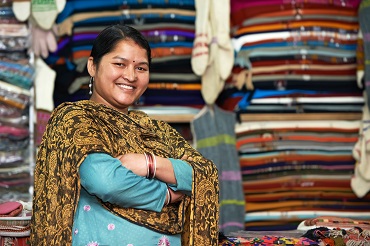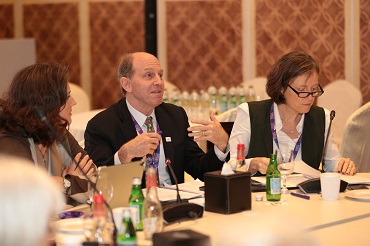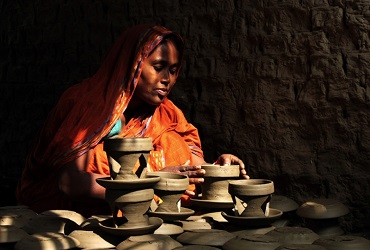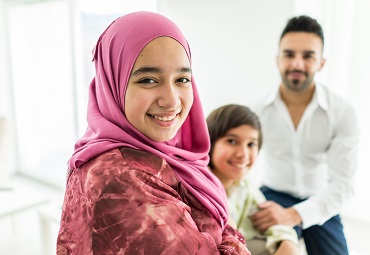Blog
The Importance of Creating Markets for Women-led MSMEs post COVID-19
May 24, 2021

A webinar summary.
Women-led MSMEs (W-MSMEs) have been particularly hard hit by the pandemic, with many reporting revenue losses over 50%, largely due to their smaller size, informality, and concentration in heavily affected sectors. IFC has implemented several COVID related interventions to support FI clients and their customers and conducted COVID-19 surveys in many countries across the region.
On April 15, Matt Gamser and the SME Finance Forum hosted a webinar to present findings of the report COVID-19 and Women-Led MSMEs in Sub-Saharan Africa: Examining the Impact, Responses, and Solutions. Speakers shared their experience, discussed whether these measures were enough, and recommendations to boost W-MSME financial inclusion.
Sharmila Hardi- IFC, kicked off the webinar sharing IFC’s commitment and support to W-SMEs through partner financial institution (FIs), to help mitigate the adverse impact of the COVID-19 pandemic. Survey results however indicate there is still more to do.
Colin Daley- IFC, moderated the discussion on How Do We Better Support Women-led MSMEs post COVID-19? while Anushe Khan- IFC, shared key highlights of the study as follows:
(i) Over 90% of SMEs suffered harsh impacts with W-MSMEs hard hit with revenue losses of over 50%,
(ii) the pandemic exacerbated W-MSMEs financial inclusion gap,
(iii) Over 90% of MSME’s still plan to maintain/ expand business with W-SMEs, expressing greater need for NFS/ digital tools,
(iv) 60% of FIs collect gender disaggregated data but only 14% use data for decisions.
FIs that acted on gender disaggregated data developed more gender intelligent communication, products, and training. The report also found that Government and FI COVID-19 support reached fewer enterprises with most financing support going to relatively larger businesses, slightly higher share of W-MSMEs adapted to digitization than M-MSMEs.
The report concluded that overall, the pandemic had an impact on every country with significant disruptions to supply chains. Trade and hospitality industries were the hardest hit. However, despite all the challenges there are still opportunities to support W-SMEs optimize their full potential and contribution to the economy.
Ada Osakwe- Agrolay Venture & The Nuli Juice Company shared her personal insights on operations and supply chain. As a woman business owner who sources from local farmers, she saw a 90% drop in revenues from a growth trajectory and had to completely shift her strategy. Most W-MSMEs only obtained restructured loans but also needed new capital, cashflow. She also shared her experience in mobilizing her W-SME network and using social media and her contacts to galvanize Government to do more for W-SMEs in Nigeria. A few W-MSMEs in Nigeria were able to obtain government funding. Urged Governments, FIs and partners to desist from flaunting financial inclusion numbers and partner with FIs to streamline loan processes, and by action make a sustainable impact on W-SMEs post COVID performance.
Elizabeth Wasunna-Ochwa- Absa Bank Kenya (ABSA), shared the disruptive nature of COVID-19 on the bank’s operations and teams’ personal lives. Hence, W-MSMEs took the brunt because of women’s dual responsibility of running home and business.
Strategic priorities for ABSA bank included: (i) W-MSMEs survival and business continuity, (ii) Staff safety, wellbeing, and ability to work from home, (iii) key sectors including health, manufacturing, (iv) introduce enhanced products to meet current needs.
She delved into ABSA’s approach to help W-MSMEs boost cashflows and sustain payments, through restructuring, payment holidays. They also used their platform to offer training and webinars to W-SMEs to adjust business models, develop business continuity plans, complementing with mentorship and coaching sessions. ABSA also partnered with Government to provide relief funds.
Gladys Muchae- Stanbic Bank, talked about COVID’s adverse impact on her bank's portfolio. In Uganda, the SME segment was more significantly impacted than corporate and consumer banking. Similar to other banks, they extended varied moratoria and some new credit to W-MSMEs based on Central Bank guidelines. They also boosted support to strategic sectors including health. Their business incubator created a couple of years ago came in handy to support W-MSMEs with training to provide business skills and capacity building.
Stanbic uses gender disaggregated data to assess savings, loans, repayment patterns and market opportunities. Findings reinforced how women are risk averse and quick to repay loans. Hence, data helped them determine loan pricing, new product needs and facilitated data driven financial inclusion.
Jesman Chonzi shared perspectives from IFC. She indicated banks have not been spared from adverse effects with pressure on revenue lines, declining performance and increased NPLs.
She however noted that the industry remained more capitalized and liquid due to various government and private sector initiatives. The industry also experienced significant digital innovation and transformation.
IFC is providing $8 billion in fast-track financial support as part of the World Bank Group $14 billion COVID package to support existing clients, help sustain economies and preserve jobs during this global crisis. Other facilities include a new Base of the Pyramid program that will provide up to $400 million to microfinance institutions, non-bank financial institutions, and banks that are focused on micro, small, and medium enterprises (MSMEs). The program will be available to new and existing IFC clients targeting MFI. Additionally, IFC also launched the Africa Medical Facility to support healthcare MSMEs obtain equipment through its partnership with FIs and Equipment manufacturers, as well as a range of advisory products.
She concluded by saying DFIs need to work closely with partner FIs to co-create timely solutions that respond to market dynamics. There is also the need to provide more gender intelligence support and partner with Fintech’s to accelerate financial inclusion for W-MSMEs. To achieve IFC’s creating markets goal, it is important for DFIs to continue to facilitate growth and development of local capital markets e.g., gender social bonds. Generally, DFIs need to play a counter cyclical role, be more creative and collaborative to enable W-SMEs access much needed funding.
In conclusion Ada Osakwe expressed optimism about the future, women are fighters and in her experience W-MSMEs are thinking of new ways to expand markets, globally. W-MSMEs generally focus on their environments, communities, and employees first and need support to super charge growth.


















